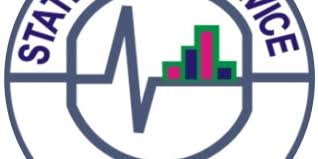Women constitute over 70% of on foot traders in Ghana’s informal cross border commerce, even as men control the majority of vehicle based export and import activities, according to the maiden Informal Cross Border Trade survey released by the Ghana Statistical Service (GSS).
The comprehensive report, covering 321 border points across ten regions during the fourth quarter of 2024, revealed that men accounted for 65.7% of export transporters while women represented 41.3% of import transporters, particularly in the Savannah, Northern and Western regions. However, women overwhelmingly dominated the low volume, high frequency trading that forms the backbone of daily border commerce.
The survey found that Ghana’s informal cross border trade with Togo, Burkina Faso and Côte d’Ivoire totaled GH¢7.4 billion in Q4 2024, representing 4.3% of the country’s total trade for the period. These figures underscore the massive scale of economic activity occurring outside formal customs systems.
Government Statistician Dr. Alhassan Iddrisu emphasized the critical role women play in sustaining border economies during the report’s launch in Accra on Wednesday. Female traders, often moving goods on foot or by bicycle, transport food, beverages and household essentials daily between border markets such as Aflao, Elubo, Paga and Hamile.
“By measuring informal trade systematically, we are strengthening the foundation for better economic planning,” Dr. Iddrisu stated. The data collection involved direct observation and interviews with traders between October and December 2024.
Men dominated motorbike based transport, accounting for over 80% of informal exports and imports using this mode. This gender divide reflects broader inequalities in access to capital, transport and security rather than differences in entrepreneurial drive.
Tricycles and motorbikes emerged as the main modes of transport in informal trade, reflecting the small scale, high frequency nature of border trading activities. Women typically engage in petty trading with shorter distance mobility, which experts attribute to systemic barriers rather than choice.
The GSS emphasized that informal trade serves as a crucial safety net for women and youth in border communities where formal employment remains scarce. Female participation in on foot trade “anchors family resilience” during economic shocks, keeping goods moving and food available at affordable prices when inflation or currency depreciation hits formal markets.
Paga retained its position as Ghana’s busiest informal trade route, topping both informal exports at GH¢168.5 million and imports at GH¢116.1 million. Other highly active borders included Kulungugu, Namoo Doone and Aflao Main.
The report identified several challenges affecting informal traders, including limited access to credit, harassment at border posts, and lack of awareness of trade documentation. Many women operate without proper identification or paperwork, exposing them to extortion and goods confiscation during inspections.
The GSS outlined key benefits from ICBT data utilization, including improved trade statistics, better Balance of Payments data, enhanced food security, and stronger income generation policies. Informal trade supports thousands of traders, farmers and transporters in border communities.
Dr. Iddrisu called for integrating gender considerations into trade facilitation policies, urging regional governments to adopt Simplified Trade Regimes that reduce paperwork and allow women to trade small quantities legally and safely. He stressed that the African Continental Free Trade Area cannot succeed without recognizing informal women traders who embody the spirit of integration by connecting communities, moving goods and sharing opportunity.
The survey showed Ghana recorded trade surpluses of GH¢576.4 million with Burkina Faso and GH¢377.6 million with Côte d’Ivoire, but a deficit of GH¢539.3 million with Togo. Informal trade accounted for 61.2% of total trade with Togo, 55.7% with Côte d’Ivoire and 37.1% with Burkina Faso.
Food products represented 49.6% of informal imports and 41% of informal exports, underscoring their importance in regional food security. The GSS recommended simplifying trader registration, providing microcredit access and offering training in record keeping and product quality standards to support these vital economic actors.
Source: newsghana.com.gh











